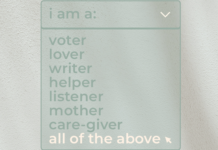I have always wondered about compatibility. What draws two people together. More importantly, what keeps them together? Many believe that chemistry is the answer. This notion of chemistry—an unknowable elixir of passion and fairy dust is appealing. It’s predicated on a magical ideal, a perfect fit, a coupling that is meant to be.
Over the years, researchers have tried to gain a better understanding of what makes a relationship work by focusing on the individuals in it and how their personalities align. Dating websites have hopped on this bandwagon too, matching singles based on preferences and personality type.
But this approach is missing a critical point. A recent landmark study of over 11,000 couples found that what matters far more than your personality (or your partners for that matter) and the fact that you both like horror movies, is how you interact with one another on a daily basis.
Yes, individual characteristics and personal attributes like income, satisfaction with life, age, and empathy mattered but not as much as the characteristics of the relationship itself.
Put another way, even if an individual is anxious or prone to irritability but manages to establish a relationship characterized by appreciation, sexual satisfaction, and minimal conflict and believes their partner to be committed and responsive—they can have a thriving and satisfying connection.
Breaking it down, here are the 5 most powerful predictors of a happy relationship:
1. Perceived-partner commitment: “My partner wants our relationship to last forever.”
2. Appreciation: “I feel very lucky to have my partner in my life.”
3. Sexual satisfaction
4. Perceived-partner satisfaction: “Our relationship makes my partner very happy.”
5. Low conflict
In other words, having a great relationship is less about finding the perfect person and more about putting in effort every day to cultivate a great relationship.
The study’s first author and the director of the Relationship Decision Lab at Western University, Samantha Joel, puts it this way:
“The dynamic that you build with someone — the shared norms, the in-jokes, the shared experiences — is so much more than the separate individuals who make up that relationship.”
Bottom Line: Great relationships don’t just happen. They are worked on. Every single day.
I wish you all the best,
Dr. Samantha Boardman






